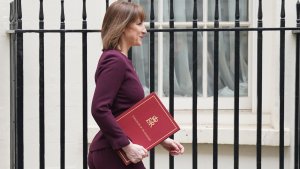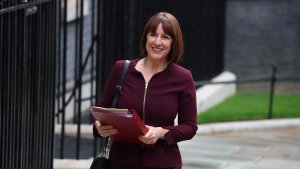The government borrowed £11.8 billion in September, £1.6 billion more than the same month last year, despite continued efforts by ministers to reduce the UK’s deficit.
UK borrowing rises again in September
The government borrowed £11.8 billion in September, £1.6 billion more than the same month last year, despite continued efforts by ministers to reduce the UK’s deficit.
The government borrowed £11.8 billion in September, £1.6 billion more than the same month last year, despite continued efforts by ministers to reduce the UK’s deficit.
It is a further blow to chancellor George Osborne, who had pledged to reduce the deficit in the 12 months from March 2014. Between April and September borrowing was £5.4 billion more than last year – a 10.3% increase.
The figures were published today by the Office for National Statistics, the government's official number-cruncher.
Samuel Tombs, senior economist at Capital Economics, said continued borrowing could prevent Mr Osborne from producing tax breaks ahead of the upcoming general election.
"The continued run of poor UK public borrowing figures looks set to severely hamper the chancellor's ability to announce giveaways to address his party's deficit in the national opinion polls before next year's general election.
"The chancellor will be forced to acknowledge in December's Autumn Statement that the fiscal consolidation is not going to plan, limiting his scope to announce pre-election sweeteners," he said.
The main reason for weak public sector finances is stubbornly slow growth in income tax receipts. These went up just 0.1% in the 12 months to September.
At the weekend, thousands of public sector workers marched to demand a “national pay rise”.
Thanks for signing up to Minutehack alerts.
Brilliant editorials heading your way soon.
Okay, Thanks!


